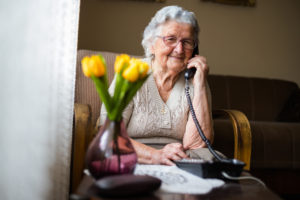 If you’re getting older and have a burning desire to avoid assisted living facilities at all costs, you can’t be blamed. These institutions have not looked good recently.
If you’re getting older and have a burning desire to avoid assisted living facilities at all costs, you can’t be blamed. These institutions have not looked good recently.
But, how do you know if and when your safety is jeopardized inside the walls of your own home? Certain abilities can decline with age. For some, it gets to the point where living independently without anyone around can become dangerous.
Advertisement
So, how do you tell?
It can be challenging to assess whether or not you can function safely at home. Harvard University has put together a checklist that might help you determine if some form of assistance is required.
One potential indicator is thinking skills. Everyone experiences the occasional memory lapse, but if unpaid bills are starting to pile up, or you regularly forget to take or fill prescriptions, it could signal trouble.
Especially if it’s happening with greater frequency than a couple of years ago.
Inform the doctor of your struggles. In the meantime, consider labeling, setting clearly visible reminders, and taking advantage of autopay functions.
A certain degree of strength is also required to safely live alone. You need it to get in and out of bed, lift household items, and walk up the stairs. If you’re feeling too weak to do these things, try a strength training program and talk to a professional.
In the short term, consider carrying smaller grocery loads or using a cane.
Balance and strength go hand in hand. Simple moves like getting out of bed or standing up from a chair require balance. With poor balance, the risk for a fall goes way up too. Grab bars, clearing floor clutter, and remove rugs that can lead to trips.
Flexibility can also help you gauge independence. Trouble washing yourself, getting dressed, or walking can all indicate compromising movements and an inability to live independently. For example, if you have trouble with the shoulders, moving high-use dishes to a more accessible cabinet or drawer may help.
Advertisement
Harvard also suggests paying attention to endurance. If you find yourself winded after moving up the stairs or across the room, you may want to talk to a doctor. They could help you identify a potential underlying cause or offer advice on improving endurance.
In the short term, you can try increasing activity to help boost endurance.
It can be hard to identify if and when you need help. Consider these factors and talk to your doctor to assess how you can safely age in place.
